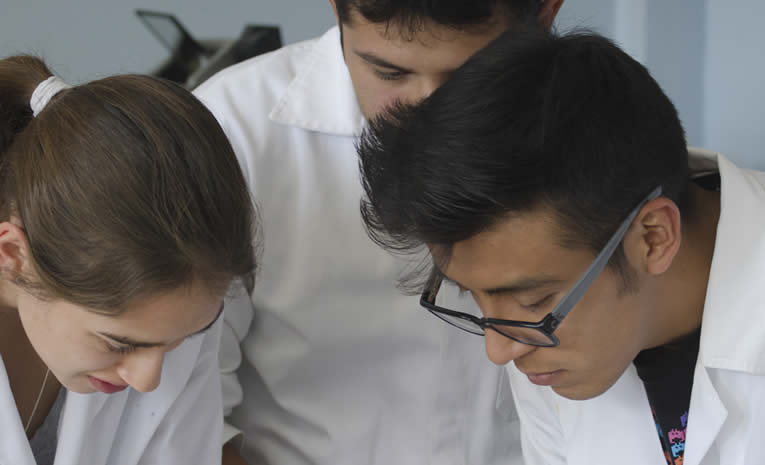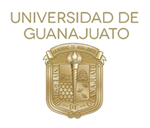
Guanajuato, Gto., August 1, 2016. From May 31st until August 6th, develops in Guanajuato one more edition of the Science Clubs, intensive courses taught by scientists of Mexico and abroad that seek to awake in the youth the passion for research and inspire them to work in projects of high level.
The clubs were created in 2014 in the city of Guanajuato, as an initiative of a group of scientists such as Benjamin Sánchez Lengeling, graduate from the degree in Mathematics from the University of Guanajuato (UG) and student of the Ph.D. in Chemistry from Harvard University.
Currently, the clubs are held in cities such as Xalapa, Mérida, Monterrey and Ensenada; countries such as Colombia and Bolivia, and they pretend for the project to extend to other places in Latin America, where the needs regarding science are similar that those in Mexico, explained Jorge Alfonso Tavares Negrete, one of the collaborators of this program and student of the Biomedical Engineering at UG's Campus León.
This year, in Guanajuato are taught eleven clubs: "Exploring the infinite through Molecular Biology", "Mini wrestlers in our mouth", "Visualizing the links of life", "Complexity: Between order and chaos", "Organic-Electronic gadgets", "Of planarian and derives", "Virus, microscopic lethal machines!", "A miniature universe: Ants and microbiomes", "Exploring the senses: ¡Science and technology", "Insects in our food: How coevolution influences plant taste", and "Of Fermentation, bacteria and flavors."
The Division of Natural and Exact Science (DCNE) of Campus Guanajuato provides the facilities to make these clubs, although they also make field work and off-wall activities, that have the objective to approach science to society in general.
In the organization collaborate, among other institutions, the National Council of Science and Technology (CONACYT), the Foundation Mexico in Harvard, David Rockefeller Center of Latin American Studies of Harvard, the Massachusetts Institute of Technology (MIT) and the California Institute of Technology (Caltech), among others.
The prestige of the Science Clubs has made possible to achieve the collaboration with researchers such as Frank Wilczek, Nobel priz of Physics 2004, who collaborated in the design of "Exploring the senses: "Science and technology!", course that in Wilczek's words, seeks to prove that in reality there is much more than human can perceive, for that, the participants will construct devices that will allow to explore aspects of the world that are not accessible to the human senses. The Club is hosted by Clark Alexander, professor at the College of Science and Health DePaul University, and Rodolfo Ferro, student from the degree in Mathematics from the University of Guanajuato.
For more information, you can check http://www.clubesdeciencia.mx and onFacebook https://www.facebook.com/clubesdecienciamx/?ref=br_rs


